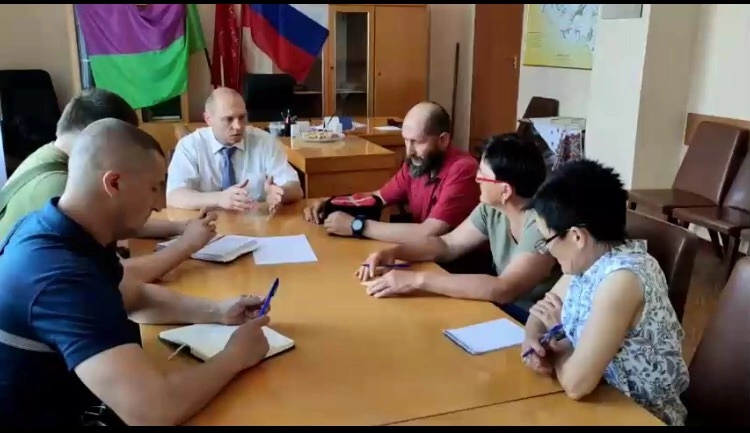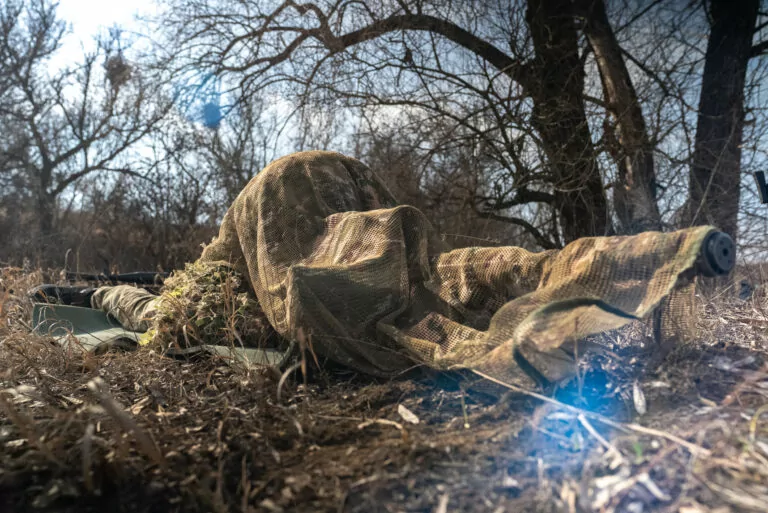After the de-occupation of Kharkiv Oblast, law enforcement officers began to identify Ukrainians who had gone over to the enemy and collaborated with them.
Between February 24, 2022 and May 3, 2023, courts with the participation of Kharkiv regional prosecutors, handed down 140 convictions in cases of collaboration (Article 111-1 of the Criminal Code) against 142 people, the Kharkiv Regional Prosecutor’s Office responded to Gwara Media request.
Overall, 318 people were notified of suspicion during the full-scale invasion:
- 266 suspicions were announced in 2022;
- 51 in the first 4 months of this year.
- In addition, during this period, law enforcement officers recorded 1275 criminal offenses of collaboration, 161 of which were sent to court.
What type of collaboration is considered criminal in Ukraine?
Collaborative activities can take many forms. According to Article 111-1 of the Criminal Code of Ukraine, the legislator defines a crime, in particular, the following acts:
- Public denial of the armed aggression against Ukraine by a citizen of Ukraine; establishment and approval of temporary occupation of part of Ukraine’s territory; public calls by a Ukrainian citizen to support the decisions and (or) actions of an aggressor state and the aggressor state’s armed formations and/or occupation administrations; calls for cooperation with an aggressor state and its armed formations and/or occupation administration; non-recognition of the extension of Ukraine’s state sovereignty over temporarily occupied territories of Ukraine.
All the declarations and refutations made on the Internet or in the media are considered public.
- Engaging in propagandistic activities on behalf of the aggressor state by a Ukrainian citizen within educational institutions; implementing actions aimed at adopting the educational standards of the aggressor state within educational institutions.
- Transferring material resources to unauthorized armed or paramilitary groups affiliated with the aggressor state; engaging in economic activities in collaboration with the aggressor state and unlawful authorities.
- Organizing and carrying out political/information campaigns in collaboration with the aggressor state to support its interests and evade responsibility for the armed aggression against Ukraine.
- Voluntarily assuming positions within unauthorized authorities, illegal judicial or law enforcement agencies; willingly participating in unauthorized armed or paramilitary groups.
- Taking part in the organization and execution of unlawful elections and/or referendums in the temporarily occupied territory or publicly advocating for such illegal elections and/or referendums.
- Assisting unauthorized armed or paramilitary groups affiliated with the aggressor state in conducting hostilities against the Armed Forces of Ukraine and other Ukrainian military formations.
What punishment is provided for cooperation with Russia?
Depending on the act committed, criminal liability may be fine, correctional labor, arrest, or imprisonment. In almost all cases, the sanction of the article provides for deprivation of the right to hold certain positions or engage in certain activities for 10 to 15 years as the main or additional punishment.
The most famous collaboration cases in Kharkiv region
- Head of court in Balakliia to face life imprisonment for collaboration. The pre-trial investigation established that in April 2022, the accused left Balakliia for the occupied Kupiansk. Then he agreed to become the “acting deputy head of the department – head of the legal support department” in the occupied and Kremlin-controlled Kharkiv Regional Military Administration. The man’s new position involved advising people on legal issues following Russian law and persuading them to cooperate with the occupation authorities. The judge is currently in Russia. He has been put on the international wanted list.
- SSU to serve suspicion notice to man who led so-called occupation ‘Police’ in Kharkiv region. “The man is a 38-year-old Ukrainian citizen living in occupied Luhansk for the previous nine years and holding senior roles in the so-called “Luhansk Interior Ministry,” said the SSU regional office press service. Before the occupation of Luhansk region, the suspect lived in Kharkiv and worked in the former militia as a junior lieutenant. Then the man was promoted to head of the occupation “police” in Kharkiv region in June 2022.
- Blogger promoting Russians in Kharkiv Oblast during the occupation to face suspicion. The Security Service of Ukraine notified in absentia the propagandist, blogger, head of the press service of the self-proclaimed “head of the military-civilian administration of Kharkiv region” Anastasia Rublevskaya for encroachment on the territorial integrity and inviolability of Ukraine. In July 2022, Russian propaganda media introduced Rublevskaya as the head of the press service of the self-proclaimed “head of the military-civilian administration of Kharkiv region” Vitaliy Ganchev.




